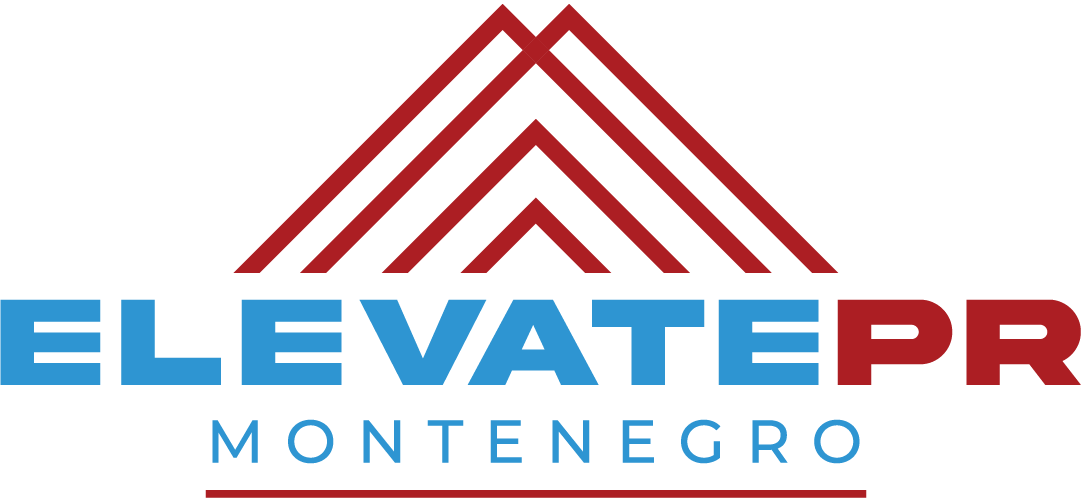Montenegro’s acceleration toward EU membership is reshaping not only its political and economic landscape, but also the very infrastructure of how businesses operate. While headlines tend to focus on tourism or political negotiations, a quieter and far more transformative story is unfolding beneath the surface: Montenegro’s emergence as a future cyber, digital-security, and trust-infrastructure hub for Southeast Europe.
The EU accession process requires full alignment with the EU Cybersecurity Framework, NIS2 Directive, GDPR, Digital Services Act (DSA) and Digital Markets Act (DMA). These frameworks, once transposed, create an environment where cybersecurity, digital compliance, and privacy governance are not optional — they become mandatory for every major company, bank, institution, manufacturer, and public entity.
For Montenegro, this is not a burden. It is an opportunity.
The shift: From small-state vulnerability to regional digital-security hub
Small states traditionally struggle with cyber capacity. Montenegro has experienced sophisticated cyberattacks targeting government systems, banking infrastructure, and data networks. Yet ironically, these vulnerabilities have accelerated institutional reform faster than in larger regional economies.
Why Montenegro is positioned to become a cyber-services hub:
- EU-driven regulatory upgrade makes it the most aligned cybersecurity jurisdiction in the Western Balkans
- Montenegro’s Euro-based economy gives foreign partners confidence in pricing and contractual stability
- Strong, multilingual technical talent capable of cross-border cyber support
- A compact public sector able to implement reforms quickly
- NATO and EU digital-security cooperation channels
- Massive demand from neighbors: Serbia, Bosnia & Herzegovina, Kosovo, North Macedonia, Albania
Montenegro can become the regional “compliance lighthouse”—the country where companies from the Western Balkans seek:
- GDPR alignment
- NIS2 readiness audits
- cybersecurity certification
- SOC-as-a-service
- vulnerability and penetration testing
- digital forensics and incident response
- cloud-compliance advisory
This market potential is significant and largely unoccupied.
The NIS2 Directive: The game-changer for Montenegro and the West Balkans
The EU’s NIS2 Directive requires:
- critical-infrastructure cyber protection
- mandatory cybersecurity governance
- operational security controls
- supply-chain cyber assurance
- incident reporting obligations
- executive liability for non-compliance
Once Montenegro transposes NIS2, Montenegrin cyber firms become automatically more competitive than peers in Serbia, Bosnia, Albania, or Kosovo, where regulatory alignment is still emerging.
How this translates into regional business:
Montenegro-based cyber firms will be able to sell:
- NIS2 gap analyses
- security architecture design
- cyber-risk registers
- supplier-chain cyber audits
- managed detection & response (MDR)
- incident response services
Western Balkan companies looking to access the EU market will prefer Montenegro-based providers — because operating under EU-aligned law protects them from compliance risk.
This is Montenegro’s entry point into the region’s high-value digital economy.
GDPR & trust services: Montenegro as a regional compliance hub
While EU membership is still ahead, Montenegro’s partial alignment with GDPR already allows Montenegro-based legal, IT, and security firms to offer:
- data-protection-as-a-service
- DPO outsourcing
- cross-border data-mapping
- DPIA assessments
- privacy governance systems
Western Balkan companies exporting services or software to the EU must comply with GDPR — but few local firms understand it deeply.
Montenegro can fill this gap.
Cybersecurity talent: Small country, high-ambition workforce
Montenegro has a growing pool of:
- cybersecurity engineers
- penetration testers
- systems administrators
- SOC analysts
- cloud specialists
- digital-forensics experts
English fluency is high and the cost base is below EU levels, while cultural alignment with EU business practices is strong.
With the right incentives — innovation zones, R&D tax benefits, training programs — Montenegro can build a regional cyber workforce pipeline unmatched in neighboring countries.
Strategic opportunity: Building a “Montenegro Cyber Corridor”
The country can create a structured cyber-economy model:
1. Cybersecurity industrial park
Specialised zones for firms providing SOC services, cyber consulting, and training.
2. Montenegro national SOC export model
Network of SOCs offering:
- 24/7 monitoring
- incident response
- AI-based threat detection
to clients across Balkans, operating under EU law.
3. Government-backed certification centers
Aligned with:
- ISO 27001
- NIS2
- ENISA frameworks
to serve as regional accreditation bodies.
4. R&D and cybersecurity academy
Training programs integrated with global vendors (Cisco, Microsoft, Palo Alto, Fortinet).
Cross-Border Synergies: Montenegro Serving the Western Balkans
Regional demand is massive.
Across Serbia, Albania, Kosovo, Bosnia and North Macedonia, organisations urgently need:
- cybersecurity upgrades
- regulatory compliance
- business-resilience systems
- cloud-migration security
- data-protection assurances
Montenegro-based firms can export:
- cyber-audits
- managed security services
- digital-compliance training
- vulnerability assessments
- operational resilience consulting
Just as Slovenia became a green-technology exporter, Montenegro can become a digital-security exporter.
EU membership: Why it creates market authority
Once Montenegro joins the EU (or even reaches advanced negotiation status), it becomes:
- a compliant legal jurisdiction
- a trusted data jurisdiction
- a preferred outsourcing option
- a regional cyber-certification center
This trust premium is Montenegro’s most valuable hidden asset.
The cyber economy is Montenegro’s next strategic export
Tourism may fill hotels, but cybersecurity fills the GDP with high-value, export-grade services. As the EU strengthens digital-regulation frameworks, businesses from across the Western Balkans will need compliance, testing, consultancy, and security operations aligned with EU law.
Montenegro — small, Euro-based, reform-driven — is uniquely positioned to deliver.
If developed strategically, the cyber-security and trust-infrastructure sector could become one of the country’s top three export industries within a decade.
Elevated by www.mercosur.me


